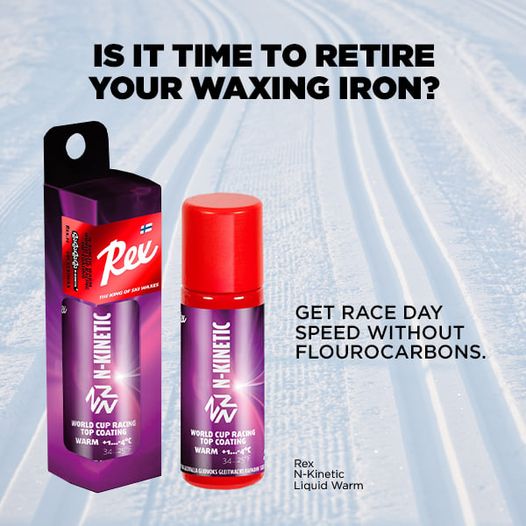Race day speeds, without fluorocarbons? Yep!
For the entire world of ski waxing, the King is dead but there’s no one in line for the throne.
Long established as a crucial ingredient for top performance, the use of per- and poly- fluorocarbons in ski waxes is being phased out and in some cases outright banned.
While there’s general agreement that continuing to use fluorocarbon containing ski waxes in a personal stock is acceptable – ultimately that use disperses the material which is preferable to concentrating them in a landfill – at some point every skier will have to make some choices about the many new non-fluoro ski waxes that are being developed.
At Oregon Mountain Community, recommendations for ski waxes used in local competitions were based on both ongoing testing but also a formula based on years of data collection. Testing of the new products started last year with the very limited availability of the new products but that was mostly to compare the non-fluoro against test standards that had fluorocarbons. Testing – which involves the use of a fleet of matched test skis and methods such as blind and double-blind protocols – has resumed this season. The goal of the current slate of testing is limited to the comparison of non-fluoro waxes and catalogued using the international snow crystal categorization.
There will be questions about the safety level of these new waxes to the human body. But if there’s anything that is truly overriding in the many studies of ski waxes on human health, it is that breathing in the dust that comes from brushing a ski base is bad for your lungs, fluoro or non-fluoro! Along with your brushes, wear a mask. After all, you’re likely getting used to wearing one.




